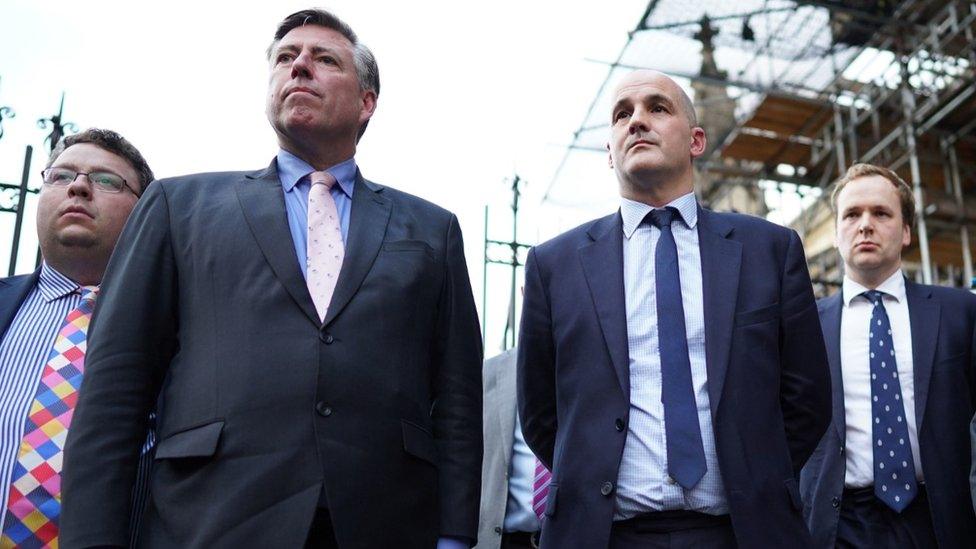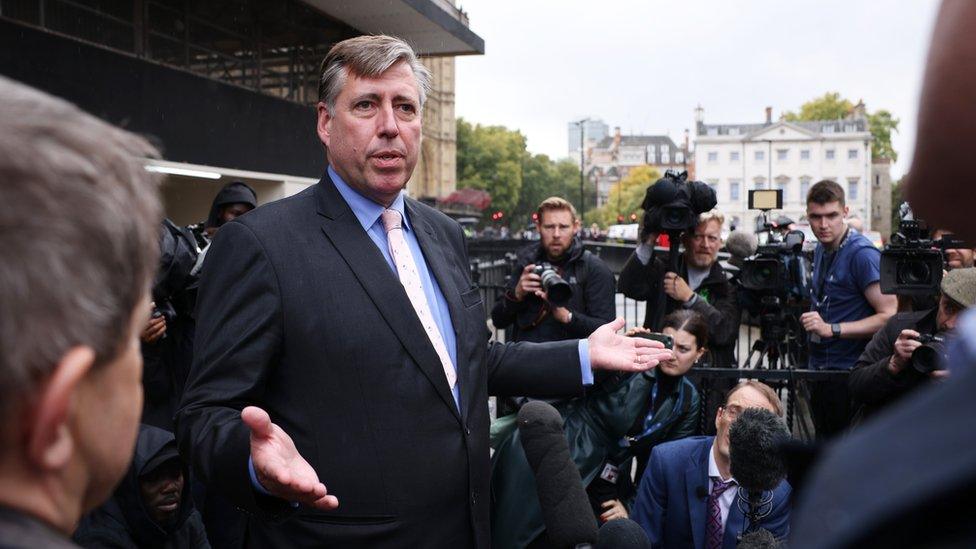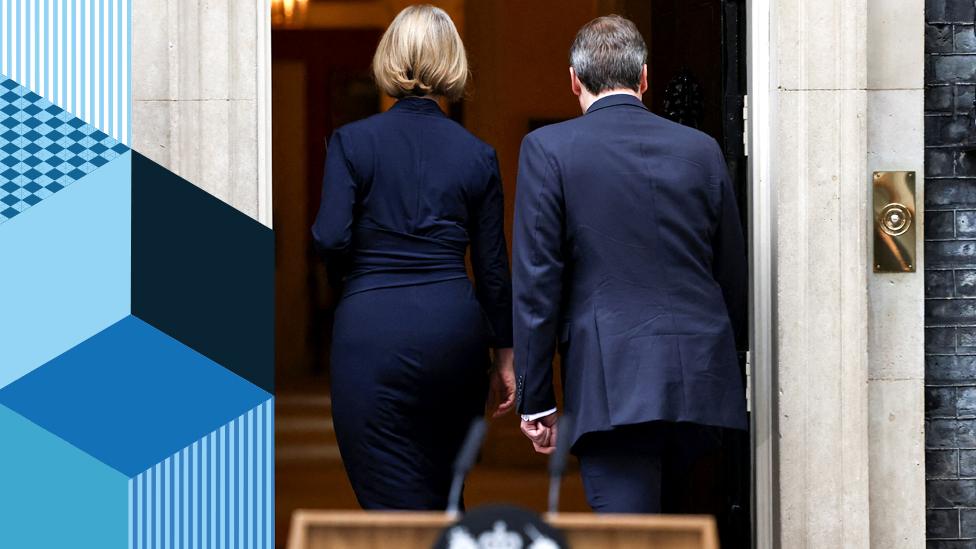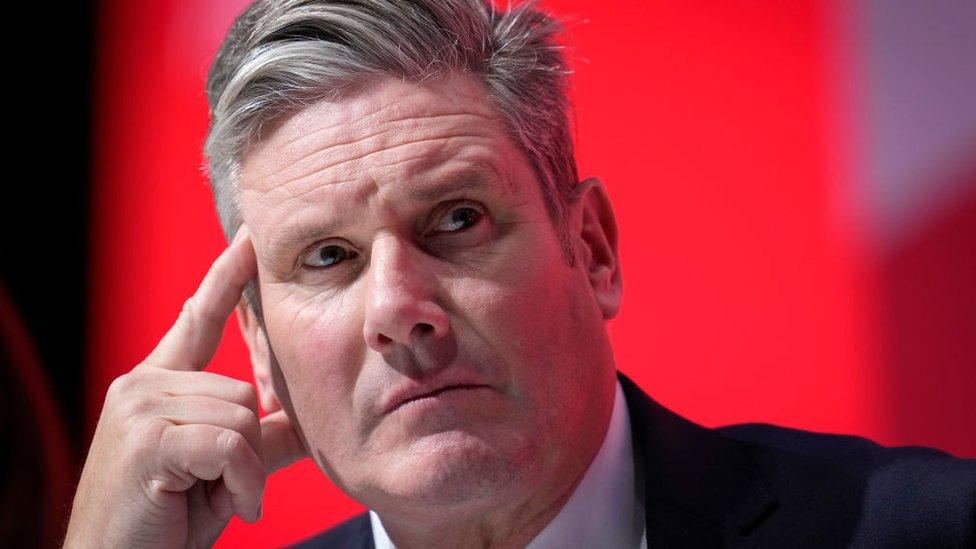Tory leadership: Hopefuls face high bar to enter contest to be PM
- Published

Sir Graham Brady and Jake Berry, flanked by other members of the 1922 committee, outlined the rules of the contest
Conservative leadership hopefuls will need the support of 100 MPs to enter the contest to be the next prime minister, under rules decided by party bosses.
Ms Truss's resignation after 45 days in office has set off a scramble to find a successor by next Friday.
Under party rules, a maximum of three MPs can run and Tory members will vote online if there is a final two.
If one candidate is picked by MPs, they will become party leader on Monday.
Allies of former Prime Minister Boris Johnson, former Chancellor Rishi Sunak, and Commons Leader Penny Mordaunt are urging them to stand for the leadership.
But none have declared leadership bids, while Labour and other opposition parties have called for an immediate general election.
Usually, Tory MPs vote to whittle down a field of leadership candidates to two, who progress to a run-off decided by the party's membership.
The last Tory leaderships contest took two months from the date Mr Johnson announced his resignation as PM in July this year.
But there is little appetite for another long and divisive leadership contest so soon after Ms Truss won the last only six weeks ago.
Instead, Conservative Party bosses have set a higher bar of 100 nominations for Tory MPs to enter the race to replace Ms Truss.
The contest has been geared towards narrowing the field as quickly as possible, without needing a final vote among party members.
Even if two candidates go head-to-head in a membership ballot, there will an "indicative vote" among MPs so the Tory grassroots will be in no doubt about the parliamentary party's preferred leader in waiting.
Sir Graham Brady, the chairman of the 1922 backbench committee of Conservative MPs, said the nomination threshold "should be achievable by any serious candidate".
Announcing the rules, Sir Graham said MPs' nominations for candidates will close at 14:00 BST on Monday.
He said if there are two candidates with enough nominations when voting closes, there will be a debate - known as a hustings - on Monday.
When asked if there could be a new prime minister in office by Monday, Sir Graham said "clearly that is the case".
Watch: Watch Liz Truss step down as PM
In her resignation speech, Ms Truss admitted she "cannot deliver the mandate" on which she was elected by the members, who voted for her tax-cutting economic agenda.
Ms Truss was voted in as Tory leader and prime minister in a ballot of about 160,000 party members, or about 0.3% of the total UK electorate.
Labour leader Sir Keir Starmer, whose party has surged in the polls during Ms Truss's turbulent premiership, said whoever takes over will not have a democratic mandate and demanded a general election "now".
"This is not just a soap opera at the top of the Tory party," he said, accusing the Conservatives of crashing the UK economy.
Related topics
- Published20 October 2022

- Published20 October 2022

- Published21 October 2022
